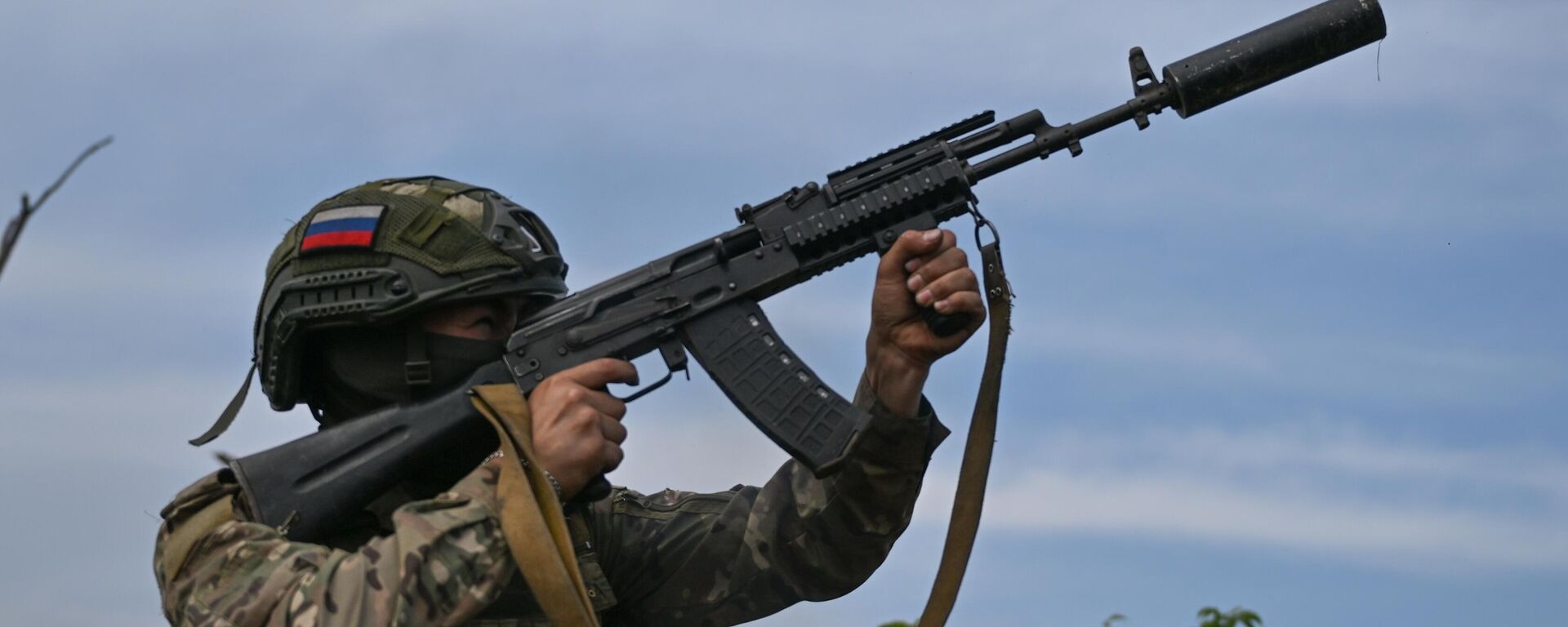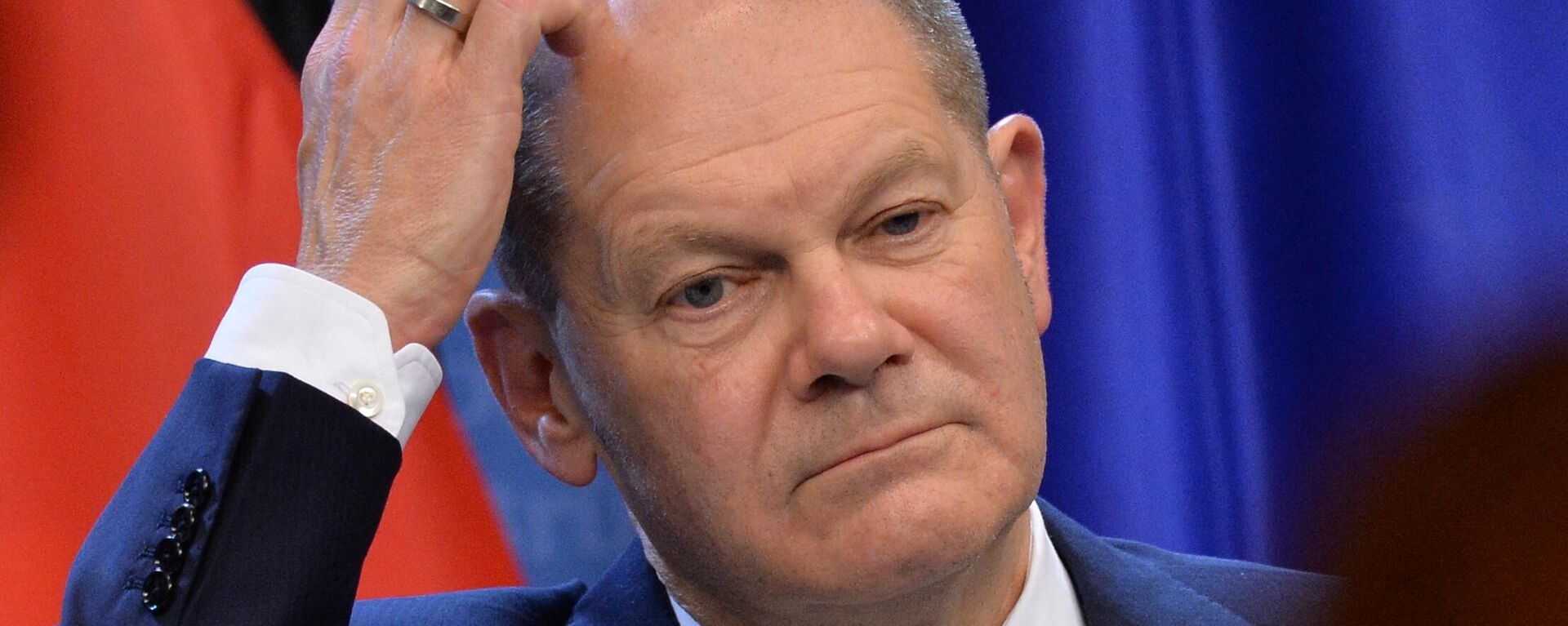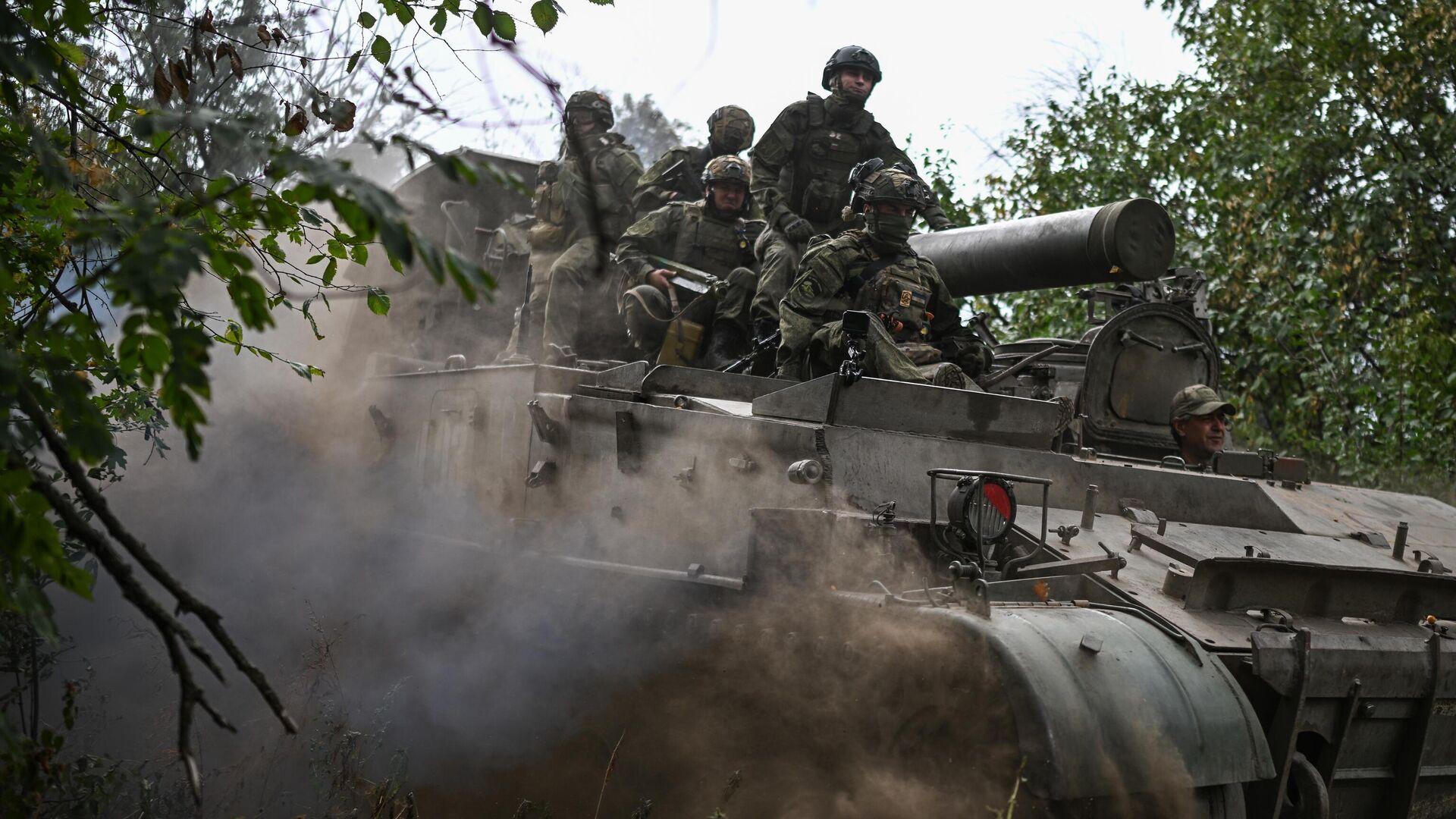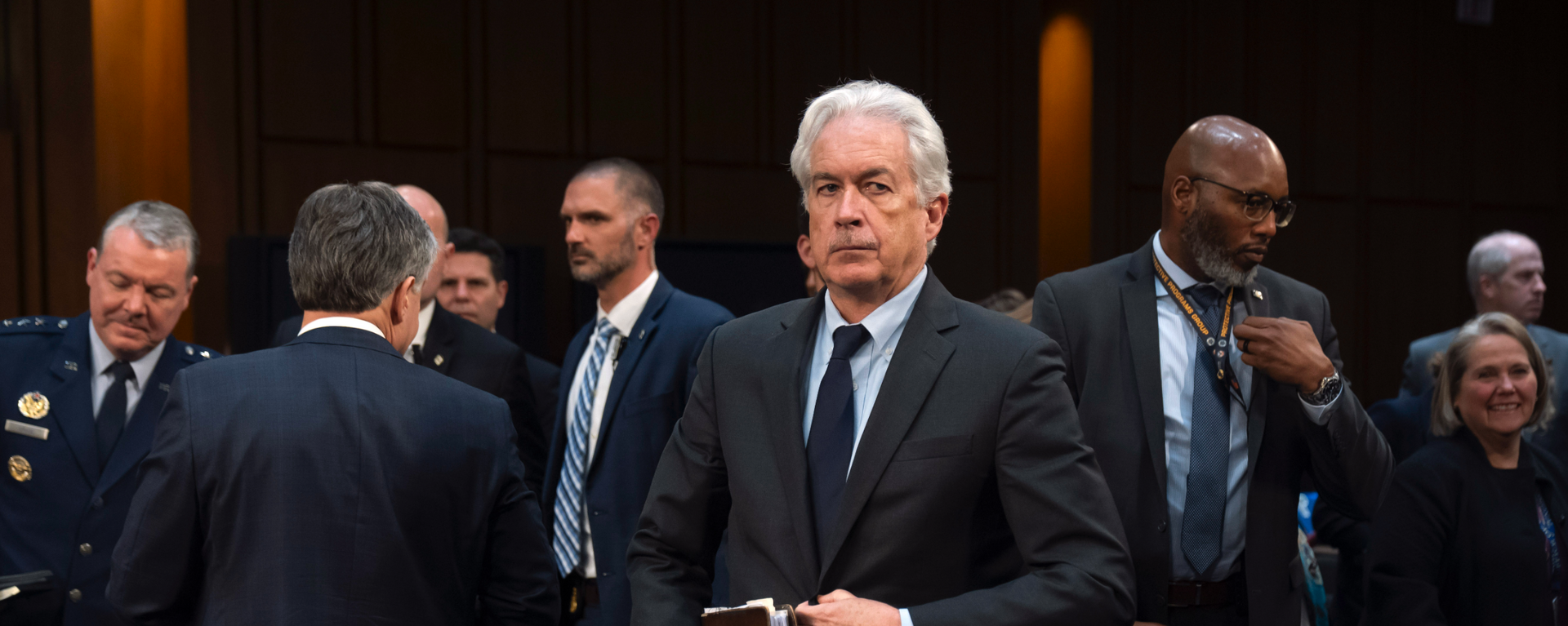https://sputnikglobe.com/20240912/russia-repels-fools-crusade-in-kursk-region-as-ukraine-redeploys-troops-to-donbass-1120113001.html
Russia Repels ‘Fool’s Crusade’ in Kursk Region as Ukraine Redeploys Troops to Donbass
Russia Repels ‘Fool’s Crusade’ in Kursk Region as Ukraine Redeploys Troops to Donbass
Sputnik International
Security analyst Mark Sleboda joined Sputnik’s Fault Lines program Wednesday to discuss Ukraine’s presence in Kursk Oblast, which Moscow has significantly repelled in recent days.
2024-09-12T19:07+0000
2024-09-12T19:07+0000
2024-09-12T19:07+0000
mark sleboda
volodymyr zelensky
ukraine
russia
kursk
cia
russian ministry of defense
fault lines
kursk
donbass
https://cdn1.img.sputnikglobe.com/img/07e8/09/0c/1120113732_0:0:3071:1728_1920x0_80_0_0_ef3a736ad4b3be77f4e7c9f7a6cf61c3.jpg
Volodymyr Zelensky surprised observers in early August when he announced that Ukraine had launched a risky incursion into Russia’ Kursk region.The maneuver began on August 6 when at least 1,000 Ukrainian troops attacked the Russian border using tanks and armored vehicles. Coming amid discussion among Ukraine’s Western allies of allowing the country to launch strikes deep within Russian territory, the audacious operation briefly created favorable headlines for the Kiev regime after months of steady losses as Russia continued to push westward towards the Dnepr River.But the incursion may have been designed simply for political consumption in the West rather than as a legitimate attempt to turn the tables in the Russo-Ukraine conflict, suggest some observers, with Kiev sacrificing valuable troops and equipment in its struggle to control a tiny patch of Russian territory. Security analyst Mark Sleboda joined Sputnik’s Fault Lines program Wednesday to discuss Ukraine’s presence in the Kursk region, which Moscow has significantly repelled in recent days.“But we got the word today in the last 24 hours – and we've received a fair amount of geolocation and other evidence – that Russian forces have begun a major counteroffensive in the Kursk area, at least from the north, probably from the west and, perhaps, from other directions as well,” said Sleboda.The security expert has previously commented on Moscow’s discipline in maintaining “operational silence,” which it demonstrated during its liberation of the important city of Avdeyevka earlier this year. The Russian Ministry of Defense studiously avoided commenting on events in the city as Russian troops executed their successful operation, taking care not to give Kiev and its Western backers any information about what was in store.Ukraine has often taken a very different approach, Sleboda noted, such as during 2023’s failed counteroffensive which was followed by eight months of hype in Western media. The country released “movie-quality trailers,” the analyst noted, attempting to build excitement for the operation in the Western press.The unusual strategy suggests the importance of Kiev’s propaganda war alongside its conventional one: politicians have struggled to make the political case for continuing to fuel the proxy conflict as polling shows the Western public has increasingly turned sour on the idea. Anti-establishment parties across the ideological spectrum have meanwhile seen a surge in support across Europe – most recently in Germany – as voters question the wisdom of continued economic and military backing for Ukraine.“[Russia] have already recovered 10 settlements,” Sleboda reported. “Roughly in terms of the number of settlements and the area recovered, about 10% of the total Kursk incursion just went away in the last three days. We didn't even know it happened until it had already happened. And, of course, by all accounts it's still extending on.”“[Ukraine] don't have any fortifications or big high-rise buildings or factories to hide in because these are podunk, scarce settlements in a forested area, and that's all they got. It's not Eastern Ukraine. It's not the same terrain, which is part of the reason why this whole Kursk [region] incursion was a fool's crusade to begin with.”The heads of US and British intelligence agencies spoke with trademark braggadocio during an event in London Saturday of Ukraine’s flagging offensive, attempting to portray the gambit as a masterstroke with the potential to change the course of the conflict. MI6 chief Richard Moore called the incursion a “bold” act with the potential to “change the game,” while CIA director Wiliam Burns labeled it a “significant tactical achievement.”“We'll know our disinformation program is complete when everything the American public believes is false,” declared former CIA director William Casey in 1981, offering a candid and unvarnished encapsulation of the organization’s quest to mislead its own people during the height of the Cold War. Forty years later, the agency’s task remains much the same as hundreds of thousands of young Ukrainians are sacrificed on the altar of Western realpolitik.
https://sputnikglobe.com/20240816/scott-ritter-russia-obliterates-nato-fighters-weaponry-as-ukraine-mounts-desperate-attack-in-kursk-1119786940.html
https://sputnikglobe.com/20240409/us-deep-state-will-call-shots-in-ukraine-not-trump-or-biden-1117816700.html
https://sputnikglobe.com/20240903/scholzs-pro-war-policy-faces-setback-in-eastern-germany-elections-1119990527.html
ukraine
russia
kursk
donbass
kursk region
Sputnik International
feedback@sputniknews.com
+74956456601
MIA „Rossiya Segodnya“
2024
John Miles
https://cdn1.img.sputnikglobe.com/img/07e8/01/19/1116388787_0:0:1316:1316_100x100_80_0_0_77e70d36afd983012b1c5d38ddb84156.jpg
John Miles
https://cdn1.img.sputnikglobe.com/img/07e8/01/19/1116388787_0:0:1316:1316_100x100_80_0_0_77e70d36afd983012b1c5d38ddb84156.jpg
News
en_EN
Sputnik International
feedback@sputniknews.com
+74956456601
MIA „Rossiya Segodnya“
Sputnik International
feedback@sputniknews.com
+74956456601
MIA „Rossiya Segodnya“
John Miles
https://cdn1.img.sputnikglobe.com/img/07e8/01/19/1116388787_0:0:1316:1316_100x100_80_0_0_77e70d36afd983012b1c5d38ddb84156.jpg
ukraine kursk incursion repelled, kursk incursion response, russia repels kursk invasion, russian advance, russian counteroffensive, russian attack, russia wins, westeeran equipment, us arms for ukraine, american weapons, proxy war, russia-ukraine war, zelensky regime, ukraine loses, ukrainian losses
ukraine kursk incursion repelled, kursk incursion response, russia repels kursk invasion, russian advance, russian counteroffensive, russian attack, russia wins, westeeran equipment, us arms for ukraine, american weapons, proxy war, russia-ukraine war, zelensky regime, ukraine loses, ukrainian losses
Russia Repels ‘Fool’s Crusade’ in Kursk Region as Ukraine Redeploys Troops to Donbass
One security analyst commented on Moscow’s discipline in maintaining “operational silence” as it moves to eject Ukrainian troops from its territory.
Volodymyr Zelensky surprised observers in early August when he announced that Ukraine had launched a risky incursion into Russia’ Kursk region.
The maneuver began on August 6 when at least 1,000 Ukrainian troops attacked the Russian border using tanks and armored vehicles. Coming amid discussion among Ukraine’s Western allies of allowing the country to launch strikes deep within Russian territory, the audacious operation briefly created favorable headlines for the Kiev regime after months of steady losses as Russia continued to push westward towards the Dnepr River.
But the incursion may have been designed simply for political consumption in the West rather than as a legitimate attempt to turn the tables in the Russo-Ukraine conflict, suggest some observers, with Kiev sacrificing valuable troops and equipment in its struggle to control a tiny patch of Russian territory. Security analyst
Mark Sleboda joined
Sputnik’s Fault Lines program Wednesday to discuss Ukraine’s presence in the Kursk region, which Moscow has significantly repelled in recent days.
“Russia has evidently, very quietly, in the last three days – we're going on the fourth day now – begun at last a major counteroffensive in the Kursk region,” said the international relations expert. “The Kiev regime… weren't talking about this at all because they don't like the results. And Russia, they often keep operational quiet. We've known that, right?”
“But we got the word today in the last 24 hours – and we've received a fair amount of geolocation and other evidence – that Russian forces have begun a major counteroffensive in the Kursk area, at least from the north, probably from the west and, perhaps, from other directions as well,” said Sleboda.

16 August 2024, 03:27 GMT
The security expert has
previously commented on Moscow’s discipline in maintaining
“operational silence,” which it demonstrated during its liberation of the important city of Avdeyevka earlier this year. The Russian Ministry of Defense studiously avoided commenting on events in the city as Russian troops executed their successful operation, taking care not to give Kiev and its Western backers any information about what was in store.
Ukraine has often taken a very different approach, Sleboda noted, such as during 2023’s failed counteroffensive which was followed by eight months of hype in Western media. The country released “movie-quality trailers,” the analyst noted, attempting to build excitement for the operation in the Western press.
The unusual strategy suggests the importance of Kiev’s propaganda war alongside its conventional one: politicians have struggled to make the political case for continuing to fuel the proxy conflict as polling shows the Western public has increasingly turned sour on the idea. Anti-establishment parties across the ideological spectrum have meanwhile seen a surge in support across Europe – most recently in Germany – as voters question the wisdom of continued economic and military backing for Ukraine.
“[Russia] have already recovered 10 settlements,” Sleboda reported. “Roughly in terms of the number of settlements and the area recovered, about 10% of the total Kursk incursion just went away in the last three days. We didn't even know it happened until it had already happened. And, of course, by all accounts it's still extending on.”
“By the reports that are coming in from the Russian forces now they're meeting very little resistance, very little effective resistance,” he continued. “The Kiev regime forces there have no vehicles left. Russia has already decimated the vehicles they brought in, out in the open, exposed in the last month of the Kursk incursion. And that the [Ukrainian] troops there are demoralized.”
“[Ukraine] don't have any fortifications or big high-rise buildings or factories to hide in because these are podunk, scarce settlements in a forested area, and that's all they got. It's not Eastern Ukraine. It's not the same terrain, which is part of the reason why this whole Kursk [region] incursion was a fool's crusade to begin with.”
The heads of US and British intelligence agencies
spoke with trademark braggadocio during an event in London Saturday of Ukraine’s flagging offensive, attempting to portray the gambit as a masterstroke with the potential to change the course of the conflict. MI6 chief Richard Moore called the incursion a
“bold” act with the potential to
“change the game,” while CIA director Wiliam Burns labeled it a “significant tactical achievement.”
“We'll know our disinformation program is complete when everything the American public believes is false,” declared former CIA director William Casey in 1981, offering a candid and unvarnished encapsulation of the organization’s quest to mislead its own people during the height of the Cold War. Forty years later, the agency’s task remains much the same as hundreds of thousands of young Ukrainians are sacrificed on the altar of Western realpolitik.
“The Kiev regime has begun withdrawing forces from Kursk [region] in the last week and sending them back to the Donbass, sending them to, in particular, Pokrovsk and Selidovo out of panic. So Russia says, ‘well, we've gotten all we really need out of this,’” Sleboda noted. “[Ukraine] don't have any more Western vehicles for us to destroy, and they're pulling troops out. Time to wrap this baby up. And that appears to be what they're doing.”

3 September 2024, 03:29 GMT






